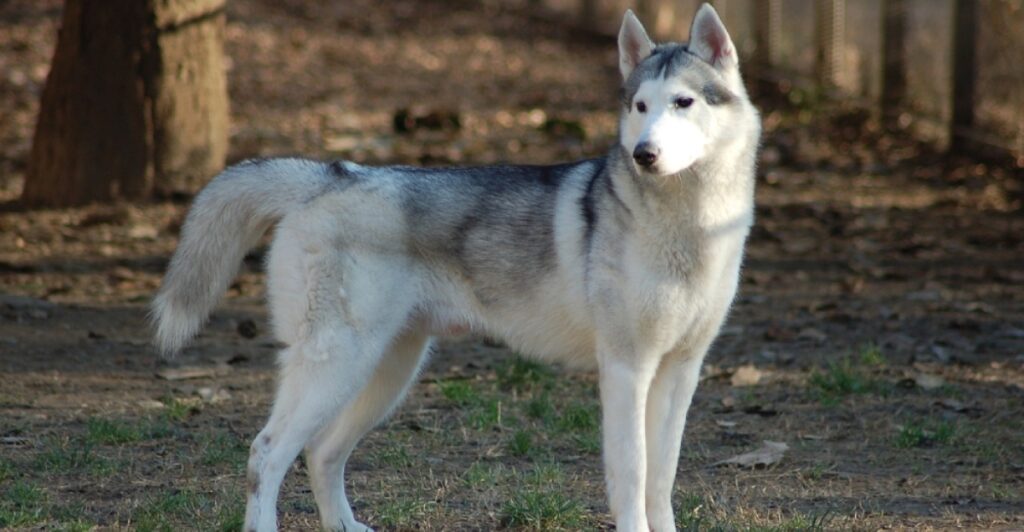
Dogs have been our loyal companions for millennia, but their lineage still carries echoes of the wild. Some breeds share a stronger genetic bond with wolves, reflected in their behavior, appearance, or history. These breeds range from striking sled dogs to surprisingly small companions. Curious about which might fit your lifestyle? Let’s explore these fascinating breeds that bring a touch of the wolf’s spirit into our homes.
1. Siberian Husky
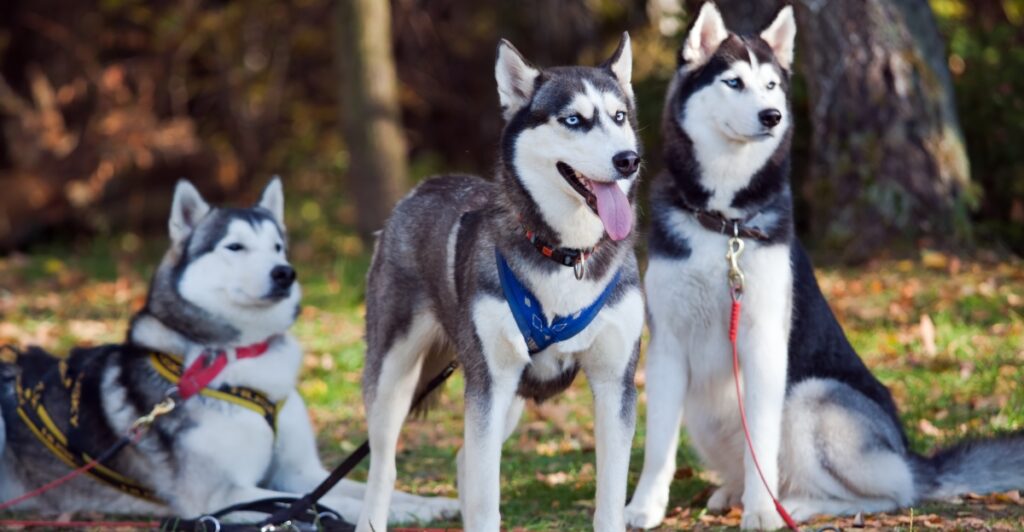
Siberian Huskies are the epitome of wolf-like beauty, with their striking eyes, erect ears, and dense fur. These medium-sized dogs originated in Siberia, bred by the Chukchi people for pulling sleds across icy terrains. Huskies don’t just resemble wolves in looks; their howling and strong prey instincts reflect the untamed aspect of their ancestry. Friendly and energetic, they thrive in active households where they can run and explore. Their double coat keeps them cozy in cold weather but also requires regular grooming. Huskies bring adventure, energy, and a connection to the wild.
2. Shih Tzu
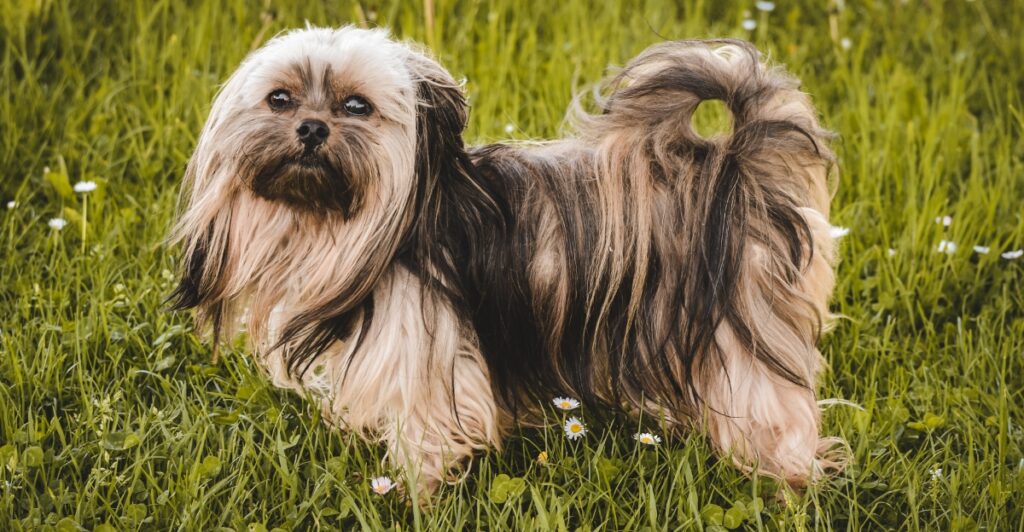
The Shih Tzu might not look anywhere near wolf-like, but it shares surprising genetic ties with its wild ancestors. Originating in Tibet, this small, affectionate breed was a cherished companion of Chinese royalty for centuries. Shih Tzus are devoted and social, embodying the pack mentality of wolves. While their luxurious coats require consistent care, their cheerful disposition makes it worthwhile. These charming little dogs adapt well to family life and thrive on human interaction. A Shih Tzu offers the perfect mix of ancient lineage and a loving, lap-sized companion.
3. Basenji
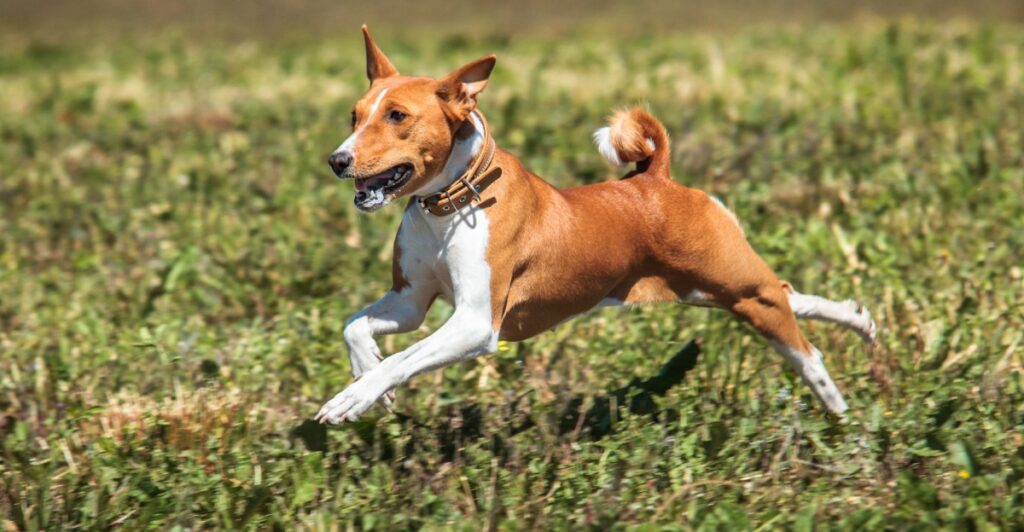
Basenjis are as unique as they are ancient. Hailing from Africa, these small, sleek dogs share a deep genetic link with wolves. Unlike most breeds, they don’t bark; instead, they use their distinctive larynx to produce a unique yodel-like sound. Originally semi-feral hunters, Basenjis are independent and agile, traits that stem from their wolfish ancestry. They require plenty of exercise and mental stimulation to stay happy. Compact and intelligent, they fit well into homes that appreciate their quirky personality and energetic nature.
4. Samoyed
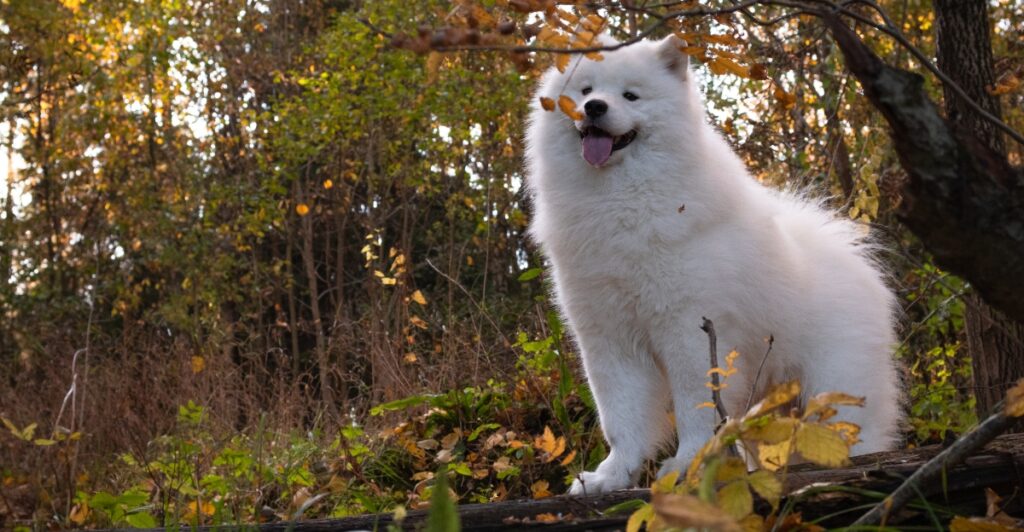
More than just fluffy white fur, Samoyeds are hardworking sled dogs with a strong bond to their wolf heritage. Originating in Siberia, they were bred by Samoyedic people to herd reindeer and pull sleds. Their trademark “Sammy smile” isn’t just charming—it prevents drooling in freezing weather. These sociable, pack-oriented dogs thrive on companionship and are incredibly friendly. While their thick coats demand thorough grooming, their affectionate nature and elegance make them worth the effort. Samoyeds are the perfect mix of work ethic and warmth.
5. Saluki
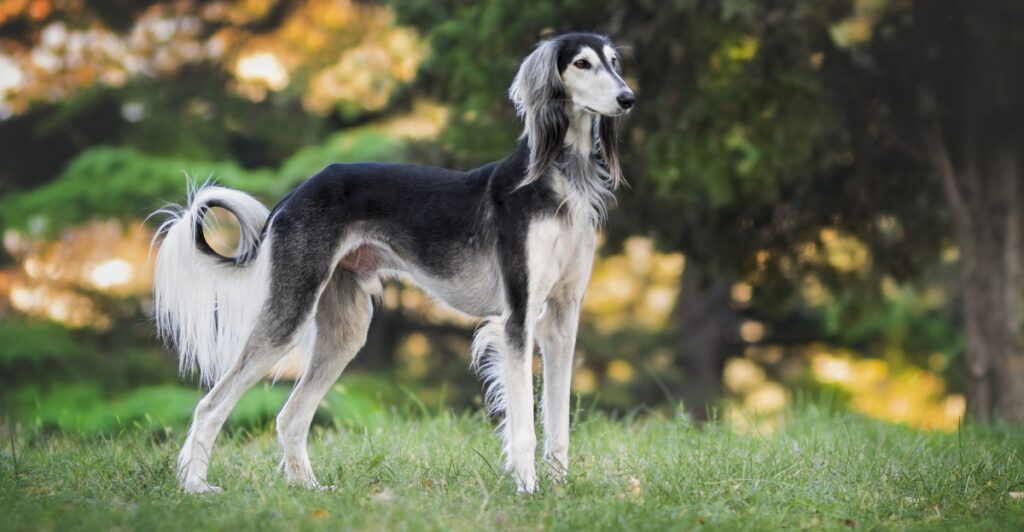
Salukis are an ancient breed that traces back thousands of years to the Fertile Crescent. Known for their graceful, lean frame and flowing coats, these dogs were prized by Egyptian royalty and even mummified alongside pharaohs. Their hunting instincts, independence, and loyalty echo their connection to wolves. Salukis are gentle and adaptable, making them excellent companions for calm households. Despite their elegant demeanor, they love to run and require space to stretch their long legs. Owning a Saluki is like having a piece of history in your home.
6. Alaskan Malamute
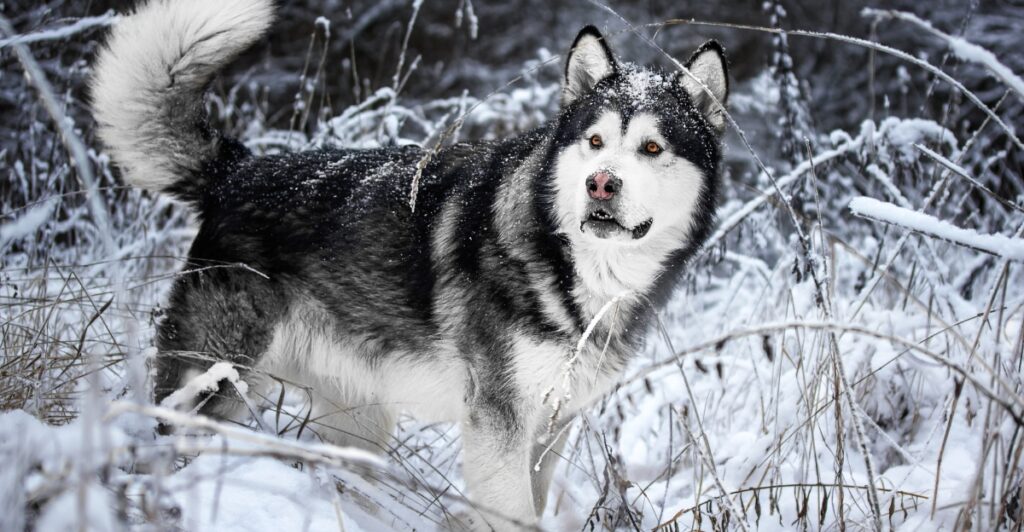
The Alaskan Malamute looks so much like a wolf that it’s often mistaken for one. This robust breed was developed by the Inuit people for pulling heavy sleds across snow-covered landscapes. Malamutes are pack animals at heart, bonding deeply with their families. While they’re strong and independent, they’re also playful and affectionate, making them excellent companions. Their thick coat, built for arctic conditions, needs regular grooming. Active and adventurous, Malamutes thrive in homes that can match their energy and give them plenty of opportunities to explore.
7. Shiba Inu
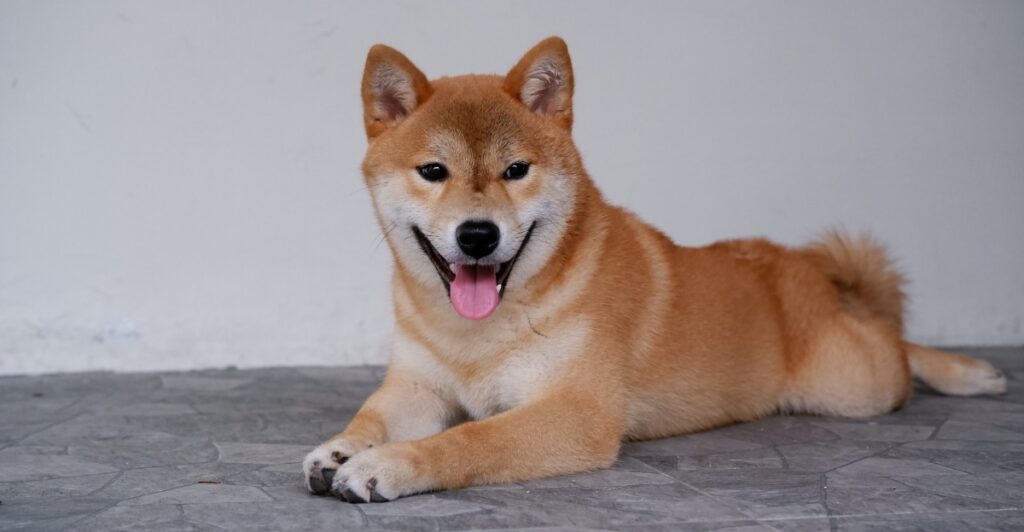
Don’t let their fox-like appearance fool you—Shiba Inus share significant genetic ties with wolves. This ancient Japanese breed is compact, confident, and full of personality. Originally used for hunting in mountainous regions, Shibas are agile and have sharp instincts. They’re fiercely independent but form strong bonds with their families. Known for their clean habits and expressive faces, Shibas are great for owners who appreciate a spirited and intelligent companion. While they can be a bit stubborn, their loyalty and charm are irresistible.
8. Afghan Hound
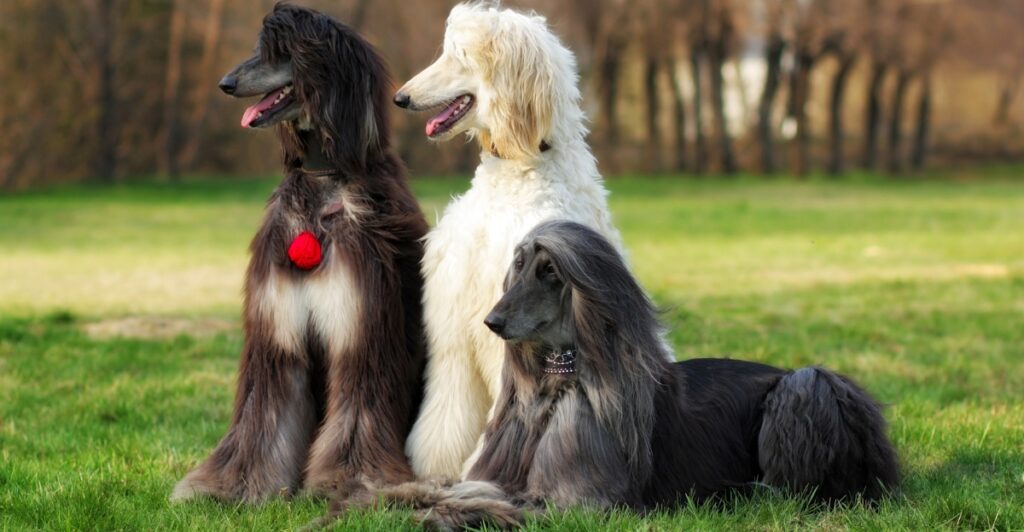
Afghan Hounds are a sight to behold with their flowing coats and regal demeanor, but beneath their beauty lies a wolfish lineage. Originating in Afghanistan, they were used as hunting dogs in rugged terrain. These sighthounds rely on sharp vision and speed to chase prey, a trait inherited from their wild ancestors. At home, they balance aloofness with bursts of playful affection. Afghan Hounds require time and care to maintain their coats, but their unique blend of grace and independence makes them a captivating companion for dedicated owners.
9. Akita
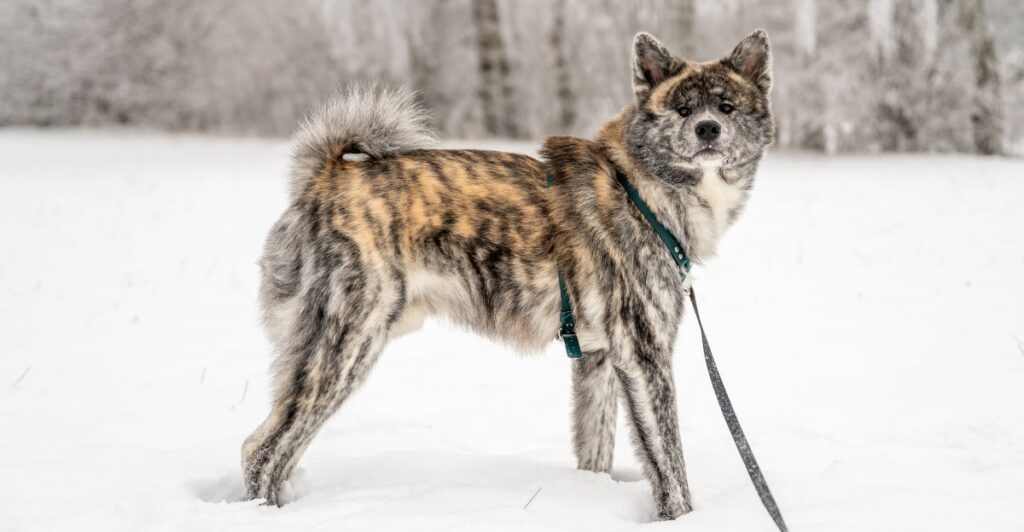
Akitas are powerful dogs with ancestry that connect them to wolves through both behavior and genetics. Originally bred in Japan for hunting large game, Akitas are courageous and deeply loyal to their families. Their protective instincts make them excellent guard dogs, while their affectionate side makes them loving best friends. They require firm training and plenty of exercise to channel their energy effectively. With their imposing presence and steadfast loyalty, Akitas are ideal for owners seeking a devoted and fearless pet.
10. Lhasa Apso
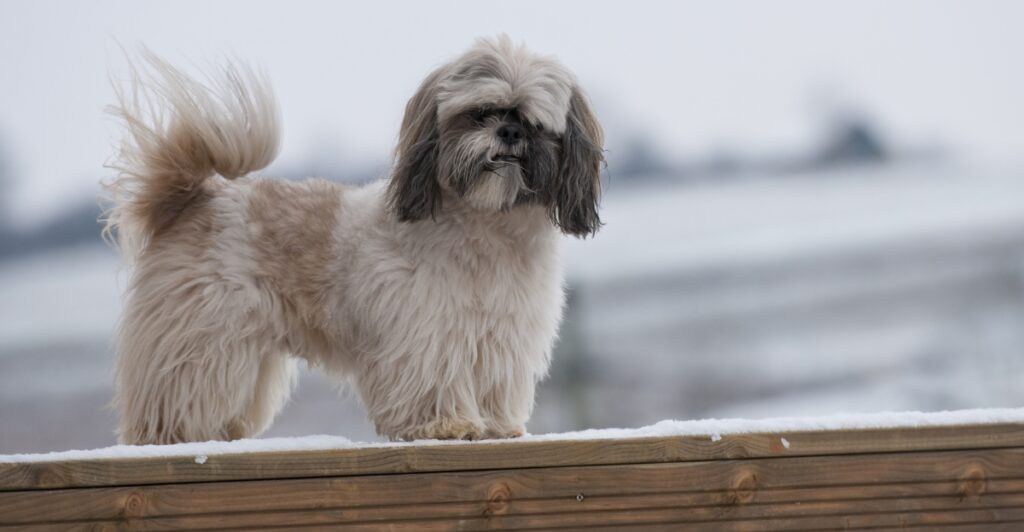
Though small in stature, the Lhasa Apso has a surprising connection to its wolf ancestors. Originating in Tibet, these dogs served as watchdogs in monasteries, using their keen senses to detect intruders. Their intelligence and bold personality belie their size, making them confident companions. Lhasa Apsos form close bonds with their humans and thrive on interaction. Their long, flowing coats require consistent grooming. With their playful and affectionate nature, owning a Lhasa Apso is like having a tiny guardian with a big personality.
Stay connected with us for more stories like this! Follow us to get the latest updates or hit the Follow button at the top of this article, and let us know what you think by leaving your feedback below. We’d love to hear from you!







